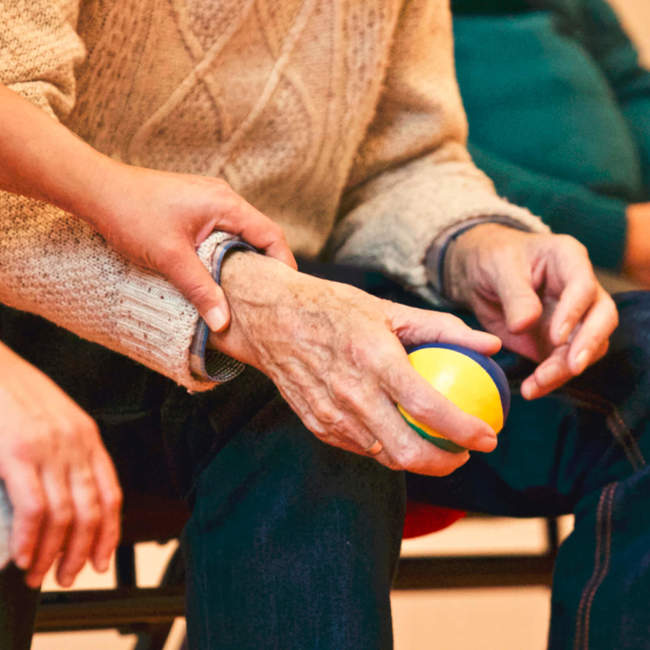Integrated Community Nursing
Award
Postgraduate Certificate
Duration & study mode
1 year part-time online programme
School
Health & Life Sciences
Location
Fully online
Course starting dates
-
Online: September

The Postgraduate Certificate will prepare Senior / Specialist nurses on the Post Registration Career Development Framework for Nurses, Midwives and Allied Health Professionals (NMAHPs) (NES, 2015) to work in adult integrated community nursing teams in Scotland. The part-time, one-year online programme will equip Level six practitioners on the Post Registration Career Development Framework to develop their theoretical knowledge and skills to become autonomous, safe and competent Senior / Specialist practitioners with new and enhanced roles in and across integrated community nursing teams within the wider health and social care landscape.
Join us at a Postgraduate Open Evening or Online Information Session in 2026 to learn about our postgraduate programmes and find out if UWS is the right place for you!
Upcoming Postgraduate Events
We welcome Scottish, UK and international students and consider all applicants on an individual basis.
Don’t worry if your qualifications are not listed here, we take a range of factors into account when assessing your application and are happy to consider other alternative combinations of qualifications and experience.
For applicants whose first language is not English, the University sets a minimum English Language proficiency level. The qualifications below must have been gained within two years of the start of your course.
General English language requirements at UWS: International English Language Testing System (IELTS) Academic module (not General Training)
Exceptions to this level of IELTS scoring exist for some accredited or professionally-recognised courses (see section below for more details).
SOCIAL WORK DEGREES
For our BA (Hons) Social Work and MSc Social Work programmes, applicants are required to have an IELTS score as follows:
All stated English tests are acceptable for admission for both home/EU and international students for this programme:
For our research degrees (MRes, MPhil, PhD, DBA, DProf) applicants are required to have an IELTS score as follows:
For Health, Nursing & Midwifery courses that lead to, or require professional registration with the Nursing & Midwifery Council, applicants are required to have an IELTS or Occupational English Test (OET)*.
For such courses, the IELTS score is as follows:
* Note that the Occupational English Test (OET) will now be accepted in addition to IELTS as proof of a Nurse's English Language Competence (Nursing & Midwifery Council, 2019).
For our BSc (Hons) Applied Biomedical Science, BSc (Hons) Biomedical Science and MSc Advanced Biomedical Science programmes, applicants are required to have an IELTS score as follows:
For our Certificate of Higher Education courses, applicants are required to have an IELTS score as follows:
TOEFL IBT*: 78; no sub-test less than:
* Please note that TOEFL is still acceptable for admission to this programme for both home/EU and international students.
For international students, the Home Office has confirmed that the University can choose to use TOEFL to make its own assessment of English language ability for visa applications to degree level courses. We therefore still accept TOEFL tests taken in the last two years for admission to this programme.
West African Senior School Certificate of Education (WASSCE) including acceptance of WAEC Scratchcard*
*UWS will accept a WAEC scratchcard confirming that an applicant has achieved C6 or above as evidence of meeting English language requirement from Nigeria if the student graduated within the last 5 years. After 5 years applicants would be required to provide the WAEC Certificate.
Applicants who do not meet the minimum English language requirements have the option to study one of our preparatory and pre-sessional English courses. The UWS courses available are:
The first module is a core module ‘Assessing in the Community’ module. The module aims to enhance the student’s existing theory and practice enabling them to develop skills in person-centred assessment to provide safe and effective person-centred care to people with complex health and care needs. It is a 10-credit module at SCQF Level 11. Students will attend online weekly scheduled learning throughout this module.
All students will then undertake the second core module ‘Leading and Transforming Together’ module. It is a 20-credit module at SCQF Level 11. This module will build on students’ existing leadership knowledge and skills in order to develop leadership within people-centred integrated care and build their resilience, manage conflict within the workplace and across sectors, and further develop skills in leading sustainable change.
Students who are supported to undertake the Independent and Supplementary Prescribing module will follow Stream A of the programme flow. The prescribing module is a long thin module and is delivered over two terms (Term 2 and Term 3). It is a 30-credit module delivered at Level 11. Students will attend online weekly scheduled learning throughout this module. The module provides an opportunity for the students to gain an NMC recordable Nurse Independent / Supplementary Prescribing qualification that will enable practitioners to meet the needs of people within their scope of practice in their community setting. Students require the following support if they are to undertake the Independent and Supplementary Prescribing module:
Students who are not supported to undertake the Independent and Supplementary Prescribing module will follow Stream B of the Programme Flow. They will undertake a 10 credit APEL module. It provides students with an authentic real-world learning activity and assessment and requires students to reflect on the delivery of a positive outcome for a person in their care. Students will then have the opportunity to undertake one of the following option modules:
There are two streams available within the programme. Students who are supported to undertake the Independent and Supplementary Prescribing module will follow Stream A of the programme flow and those students who are not supported to undertake the Independent and Supplementary Prescribing module will follow Stream B of the programme flow (students following Stream B who have already completed the Independent and Supplementary Prescribing module would have the opportunity to import certified credit, as per the UWS Recognition of Prior Learning (RPL) policy, or if they choose undertake the alternative modules as detailed below.

All students should apply directly to the University through our online application system. Before you apply, you should check that you meet our entry requirements and you should have all your supporting documents ready.
The first stage of the process is to create a profile; you don't have to complete the application in one session - you can complete it in stages by saving each section and return to complete it at a later date.
You will need to upload documents with your applications, which may include transcripts and degree certificates.
Most courses don't have a formal closing date, but they will close when they are full; apply early to avoid disappointment. There may also be funding deadlines that apply to you.
Before you begin your application, it is important to read the Postgraduate & Post-Experience application step-by-step guide for a smooth process.
An ATAS certificate is not required for overseas students applying for this course.
Do you have a question about applying for this course? Our friendly admissions teams are here to help!
UK based prospective students
If you’re applying from within the UK, our applicant enquiry team is here to guide you every step of the way.
International prospective students
Our international team is ready to support you with your application and any questions about joining UWS from abroad.
We will always try to make sure that we publish accurate course information but we do not accept responsibility for any mistakes or omissions. We will also try to make sure that we deliver our courses in line with our published information. However, we may not always be able to do so and you can find further information about this in our enrolment terms and conditions.